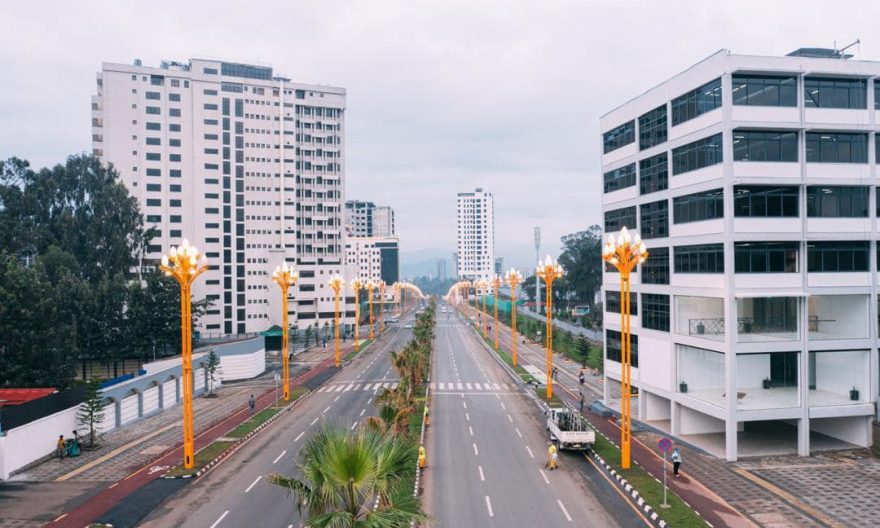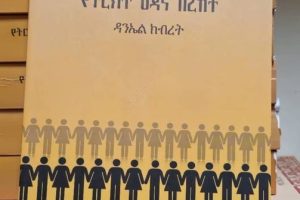
In the days of yore, hankering for positions leaders were mostly marked for pulling back one another to climb to the top of the power ladder. Instead of cooperation for development and chemistry a bent for destruction was their entrenched characteristic feature. Their untoward and contagious behavior has been infecting the majority of the public. As such, many people have been witnessed trying to move heaven and earth to meet their ends oblivious and inured to the harm they inflict on others. As a repercussion, projects were mismanaged, and corrupt officials looted allotted budgets. Good governance problems had risen to their crescendo forcing the public to outrage and bloody protests, which led to the downfall of the Ethiopian People’s Revolutionary Democratic Front (EPRDF). Citizens welcomed Prime Minister Abiy Ahmed’s new Administration.
The new administration has been implementing several reforms over the past six years and observably these reforms are changing some of the traditions between the officials, the public servants, and the public itself. Making Addis Ababa a new flower true to its name was one of the highly valued reforms that the Prime Minister has been pursuing. Different City development projects are underway.
The implementation of the new development projects in Addis Ababa has given birth to a new culture and an impetus to construction. The Corridor Development Project is a living billboard that this infantile culture is being nurtured in good care. The higher officials playing the leading role in a task force, sub-cities, and Woredas are in an encouraging cooperative working spirit. As a result, most of the corridors are due to see completion within set deadlines, as everyone in the project works around the clock.
The corridor development project, which emanates from Mexico and snakes through Sarbet and Gottera is one part of the project ready to see the light of day. This corridor route and another route that goes from Meskel Square join at Wolo Sefer. The corridor routes are also extended on the lands of two sub-cities, Lideta and Kirkos. As a result, it has become mandatory for the two sub-cities to work in collaboration. In this case, it is not only about the efforts of the officials but also the cooperation of the public, investors and other contributors.
Mubarek Kemal, Chief Executive Officer (CEO) of Kirkos Sub-city, describes the cooperative spirit of all actors in the corridor development project with great excitement. He says people whose properties or lands have been compromised by the project have never shown a feeling of loss or regret. Instead, they believe in the best cause and are cooperative with warm hearts. “In early trends the culture of cooperation for development was impossible. I remember the construction of the main road from Gotera to Pushkin was delayed for six months due to issues related to a single house. Now there is not much foot-dragging, and everyone is happily cooperative,” says Mubarek.
According to him, owners of big buildings and residents of the neighborhoods are willingly spending money for the renovation of their properties. He says with the integrated cooperation of the task force and the public, the corridor roots are approaching their completion. “We have almost completed the major construction activities and based on the comments we have collected from residents; we are making improvements. For instance, there were high curve stones, which proved difficult for disabled people who use wheelchairs. These curved stones are being chiseled into appropriate shapes. Following the directions of the quality control group, there are also other finishing touches we are giving the almost completed task a finishing touch. As a result, correctional works is going on. It is a matter of days success consummate our effort,” he noted.
For Mubarek the City Corridor Development Project was a historic watershed, which he and many others took different lessons from. The first lesson learned was the strength of integrated effort. He says every cable facility is going to be buried underground. “Electric, telecom wires and water pipes will all beneath the ground. In former trends, streamlined activities were lacking. In a day gap, one would start digging the pavement, beneath which the other already completed burying cables. But now that trend is thrown to the dustbin of city’s history following the corridor development project. Every facility is built as per integrated cooperation of all institutions”.
Seid Ali, CEO of Lideta Sub-city, for his part, says as Lideta and Kirkos sub-cities are neighbors, both are working in collaboration. The corridor routes in both sub-cities are almost through. “The pedestrian walks, the bicycle lines, the major asphalt roads, and the greenery activities are drawing to a close. Currently, we are handling tasks regarding street light poles. Merely few correction activities are remaining.”
He also supports Mubarek’s idea of integrated cooperation between infrastructure institutions, government officials, investors and the public. Mexico, a neighborhood in Lideta sub-city, is the seat of several governmental and private institutions and companies. For the sake of development, both private and governmental institutions and companies didn’t hesitate to remove their old fences and renovate their buildings, according to Seid.
Seid also indicated that the corridor development is going in line with the riverside development. “We are building public plazas, putting in place wider parking lots, and also doing forestry”, he said. In early trends, the idea of building a big city was understood as if it was creating concrete jungles. A green forest in the middle of a city was unthinkable. There was no forest in Lideta before. There were only big buildings and slum houses. Now we are creating a forest, which will be a recreational spot for residents.”
Addis Ababa is not only the capital of Ethiopia but also the seat of the African Union (AU). Places like Meskel Square, Mexico, and Wolo Sefer are supposed to be VIP corridors, where leaders and diplomats pass by. As a result, beautifying these VIP corridors may not only change the old image of the city but also make residents proud of what they did for their guests.
Residents are already giving testimonies of how the corridor development changed the image of the city. Gashaw Workneh is a resident who found the difference before and after the corridor development to be very unbelievable. He said he was strolling from Mexico to Sarbet and the turnaround was amazing. “The Asphalt and pedestrian roads, the bicycle lanes, the greenery, the lights have created an electrifying vibe. I have been following up the construction work afoot and the pace was very speedy,” he said.
The corridor development project has brought several constructive and creative cultures to the city. This is expected to ripple not only across Addis Ababa but also across the whole in Ethiopia. Since the project is being executed thanks to the generous contribution of people from all walks of life, it is also mandatory that with a sense of ownership, everyone cooperates in protecting the corridors and the facilities, after they are complete. Everyone is expected to keep them clean. Everyone is expected to use them with a sense of ownership so the quality of a modern lifestyle will be embraced by the societies.
BY NAOL GIRMA
THE ETHIOPIAN HERALD FRIDAY 5 JULY 2024





